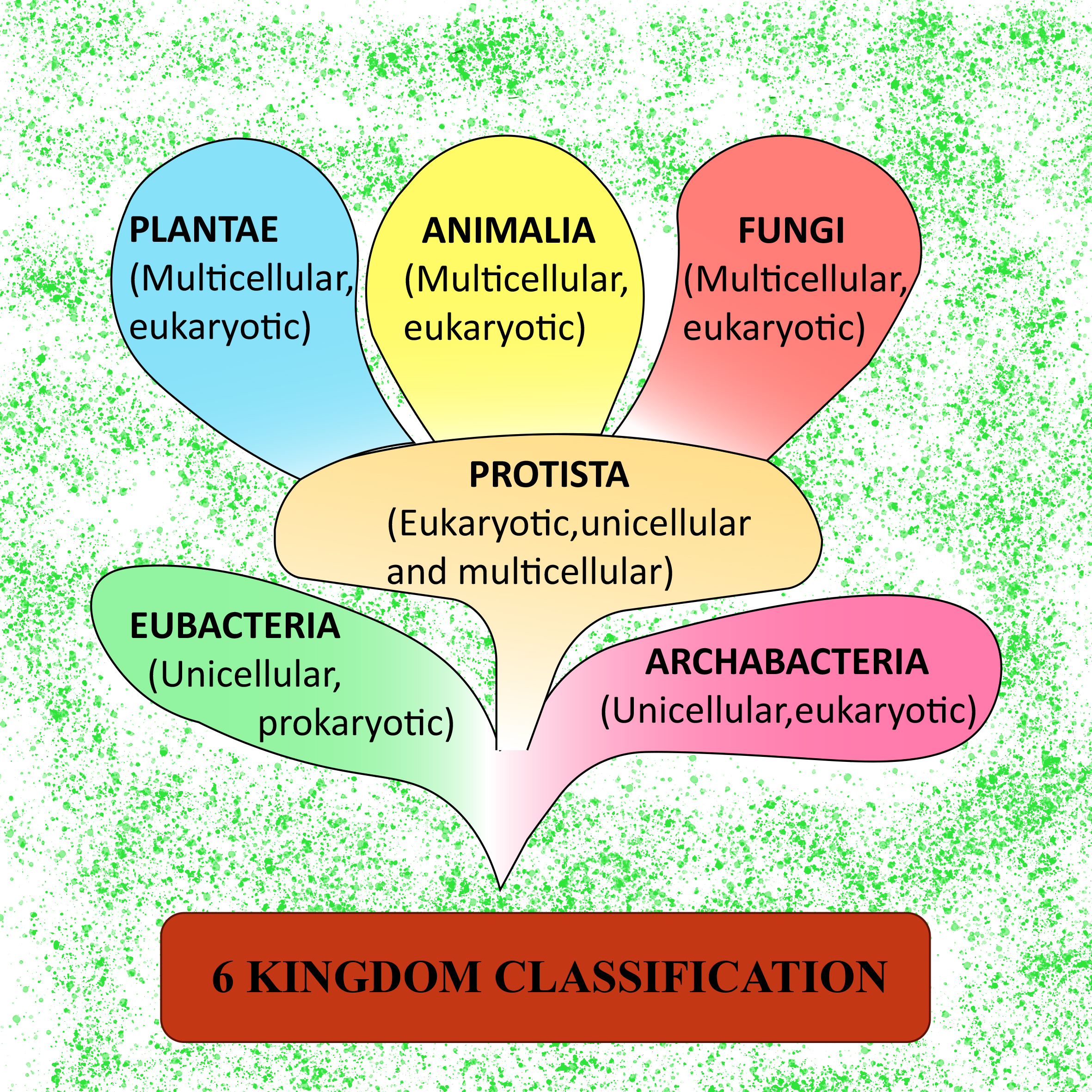
Six kingdom classification was suggested by?
Answer
589.5k+ views
Hint:The scientist who gave six kingdom classification was an American microbiologist and biophysicist. He is famous for defining the Archaea (a new domain of life) by the phylogenetic taxonomy of 16S ribosomal RNA.
Complete answer:
Carl Woese proposed the six- kingdom classification. These six kingdoms are Kingdom Archaebacteria, Kingdom Eubacteria, Kingdom Protista, Kingdom Fungi, Kingdom Plantae, and Kingdom Animalia. Woese found that the six kingdoms naturally cluster into three main categories, based on the sequence of 16s ribosomal RNA genes. He called these categories as domains of life. These domains are Bacteria, Archaea, and Eukarya. He also believed that these domains have originated from common ancestors called Progenote.
- Archaebacteria are the oldest known living organisms. They are single- celled and thrive in extremely hot boiling water found in environments - Eubacteria are also single- celled bacterial organisms. Eubacteria are very common and well- known to us as parasites but some bacteria are also commensal and used for the production of many antibiotics or food material. - The Fungi kingdom is recognizable to us like mushrooms, molds, mildews, and yeasts. Fungi are multi- celled organisms. - Protista or Protozoa are single- celled organisms but are more complex than eubacteria. The Protista kingdom includes algae and slime molds. - The Plantae kingdom includes all flowering plants, mosses, and ferns. Plants are multi- celled, complex organisms and are Autotrophic except for a few. - The largest kingdom is the Kingdom of Animalia. There is a wide variety of organisms ranging from sponges to blue whales.

Note:
- Carl Woese separated the archaebacteria from eubacteria based on some major differences such as the absence of peptidoglycans in the cell walls of the former and the occurrence of branched- chain lipids in the membrane. - The kingdom is the second- highest rank after the domain. - In six kingdom classification, kingdom Monera is replaced by Kingdom Archaebacteria, Kingdom Eubacteria. - In the animal kingdom, all organisms in the Animal kingdom are Heterotrophs meaning, unlike plants that produce their food, animals feed upon other organisms.
Complete answer:
Carl Woese proposed the six- kingdom classification. These six kingdoms are Kingdom Archaebacteria, Kingdom Eubacteria, Kingdom Protista, Kingdom Fungi, Kingdom Plantae, and Kingdom Animalia. Woese found that the six kingdoms naturally cluster into three main categories, based on the sequence of 16s ribosomal RNA genes. He called these categories as domains of life. These domains are Bacteria, Archaea, and Eukarya. He also believed that these domains have originated from common ancestors called Progenote.
- Archaebacteria are the oldest known living organisms. They are single- celled and thrive in extremely hot boiling water found in environments - Eubacteria are also single- celled bacterial organisms. Eubacteria are very common and well- known to us as parasites but some bacteria are also commensal and used for the production of many antibiotics or food material. - The Fungi kingdom is recognizable to us like mushrooms, molds, mildews, and yeasts. Fungi are multi- celled organisms. - Protista or Protozoa are single- celled organisms but are more complex than eubacteria. The Protista kingdom includes algae and slime molds. - The Plantae kingdom includes all flowering plants, mosses, and ferns. Plants are multi- celled, complex organisms and are Autotrophic except for a few. - The largest kingdom is the Kingdom of Animalia. There is a wide variety of organisms ranging from sponges to blue whales.

Note:
- Carl Woese separated the archaebacteria from eubacteria based on some major differences such as the absence of peptidoglycans in the cell walls of the former and the occurrence of branched- chain lipids in the membrane. - The kingdom is the second- highest rank after the domain. - In six kingdom classification, kingdom Monera is replaced by Kingdom Archaebacteria, Kingdom Eubacteria. - In the animal kingdom, all organisms in the Animal kingdom are Heterotrophs meaning, unlike plants that produce their food, animals feed upon other organisms.
Recently Updated Pages
Master Class 11 Computer Science: Engaging Questions & Answers for Success

Master Class 11 Business Studies: Engaging Questions & Answers for Success

Master Class 11 Economics: Engaging Questions & Answers for Success

Master Class 11 English: Engaging Questions & Answers for Success

Master Class 11 Maths: Engaging Questions & Answers for Success

Master Class 11 Biology: Engaging Questions & Answers for Success

Trending doubts
One Metric ton is equal to kg A 10000 B 1000 C 100 class 11 physics CBSE

There are 720 permutations of the digits 1 2 3 4 5 class 11 maths CBSE

Discuss the various forms of bacteria class 11 biology CBSE

Draw a diagram of a plant cell and label at least eight class 11 biology CBSE

State the laws of reflection of light

Explain zero factorial class 11 maths CBSE




